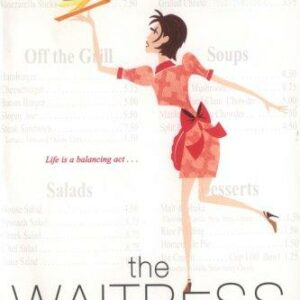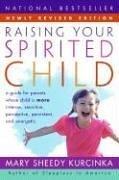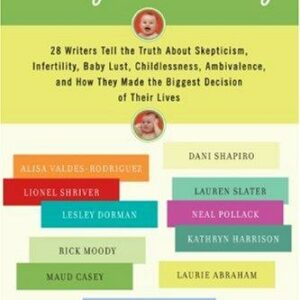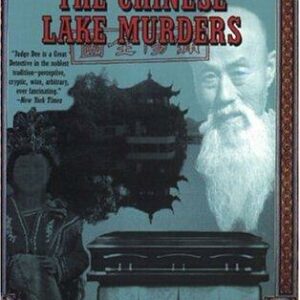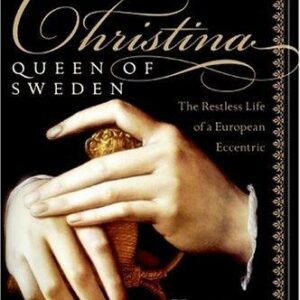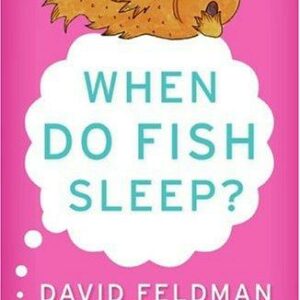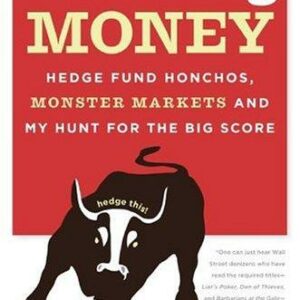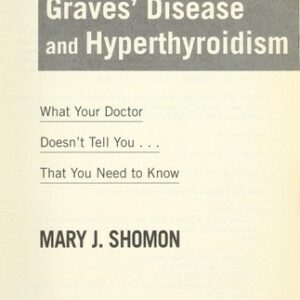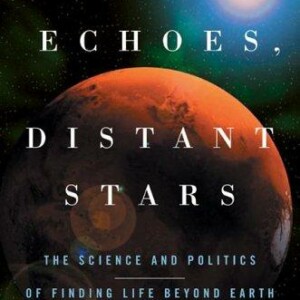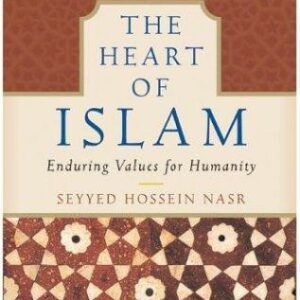Humanly Possible
$20.00
| Title | Range | Discount |
|---|---|---|
| Trade Discount | 5 + | 25% |
- Description
- Additional information
Description
“A book of big and bold ideas, Humanly Possible is humane in approach and, more important, readable and worth reading . . . Bakewell is wide-ranging, witty, and compassionate.” —The Wall Street Journal
An exploration of seven hundred years of writers, thinkers, scientists, and artists, all trying to understand what it means to be truly human
Humanism is an expansive tradition of thought that places shared humanity, cultural vibrancy, and moral responsibility at the center of our lives. For centuries, this worldview has inspired people to make their choices by principles of freethinking, intellectual inquiry, fellow feeling, and optimism. In this sweeping new history, Sarah Bakewell, herself a lifelong humanist, illuminates the very personal, individual, and, well, human matter of humanism and takes readers on a grand intellectual adventure.
Voyaging from the literary enthusiasts of the fourteenth century to the secular campaigners of our own time, from Voltaire to Zora Neale Hurston, Bakewell brings together extraordinary humanists across history. She explores their immense variety: some sought to promote scientific and rationalist ideas, others put more emphasis on moral living, and still others were concerned with the cultural and literary studies known as “the humanities.” Humanly Possible asks not only what unites all these meanings of humanism but why it has such enduring power, despite opposition from fanatics, mystics, and tyrants. A singular examination of this vital tradition as well as a dazzling contribution to its literature, Humanly Possible serves as a recentering, a call to care for one another, and a reminder that we are all, together, only human.ONE OF THE NEW YORK TIMES BEST BOOKS OF 2023
“Humanly Possible is a terrific invitation to argument, to conversation, to all the fun people make together, on their own.” —Washington Post
“Lively. . . [Bakewell’s] new book is filled with her characteristic wit and clarity; she manages to wrangle seven centuries of humanist thought into a brisk narrative, resisting the traps of windy abstraction and glib oversimplification. . . She puts her entire self into this book, linking philosophical reflections with vibrant anecdotes. She delights in the paradoxical and the particular, reminding us that every human being contains multitudes.” —Jennifer Szalai, New York Times
“A book of big and bold ideas, Humanly Possible is humane in approach and, more important, readable and worth reading . . . Bakewell is wide-ranging, witty and compassionate.” —The Wall Street Journal
“Bakewell exemplifies the thirst for life and learning of humanism at its best.” —Literary Review
“Exhilarating.” —The Times (UK)
“Witty and warm-hearted.” —The Daily Telegraph
“NBCC Award winner Bakewell (How to Live) brilliantly tracks the development of humanism over seven centuries of intellectual history . . . Erudite and accessible, Bakewell’s survey pulls together diverse historical threads without sacrificing the up-close details that give this work its spark. Even those who already consider themselves humanists will be enlightened.” —Publishers Weekly (starred review)
“Engagingly written as well as richly informative . . . every thinker, every book, every movement is located lightly and precisely in relation to its past and its influence on the present day. I can’t imagine a better history of humanism, nor one that is so vividly persuasive. Bakewell is a wonderful writer.” —Philip Pullman
“Sarah Bakewell’s books are always a joyous education . . . She combines a keen intellect with a lightness of touch and one always feels that she delights in sharing what she has learned. That delight is contagious . . . the world looked different when I finished this book.” —Robin Ince, co-host of The Infinite Monkey Cage and author of The Importance of Being InterestedSarah Bakewell had a wandering childhood, growing up on the “hippie trail” through Asia and in Australia. She studied philosophy at the University of Essex and worked for many years as a curator of early printed books at the Wellcome Library, London, before becoming a fulltime writer. Her books include How to Live, or A Life of Montaigne in One Question and Twenty Attempts at an Answer, which won the Duff Cooper Prize and the National Book Critics Circle Award, and At the Existentialist Café: Freedom, Being, and Apricot Cocktails, one of the New York Times’ Ten Best Books of 2016. Bakewell was also among the winners of the 2018 Windham-Campbell Prize. She still has a tendency to wander but is mostly to be found either in London or in Italy with her wife and their family of dogs and chickens.Only Connect!
An Introduction
What is humanism?” That is the question posed, in David Nobbs’s 1983 comic novel Second from Last in the Sack Race, at the inaugural meeting of the Thurmarsh Grammar School Bisexual Humanist Society-“bisexual” because it includes both girls and boys. Chaos ensues.
One girl begins by saying that it means the Renaissance’s attempt to escape from the Middle Ages. She is thinking of the literary and cultural revival conducted by energetic, free-spirited intellectuals in Italian cities such as Florence in the fourteenth and fifteenth centuries. But that’s not right, says another of the society’s members. Humanism means “being kind, and nice to animals and things, and having charities, and visiting old people and things.”
A third member replies scathingly that this is to confuse humanism with humanitarianism. A fourth complains that they are all wasting time. The humanitarian bristles: “Do you call bandaging sick animals and looking after old people and things a waste of time?”
The scathing one now puts forward a different definition altogether. “It’s a philosophy that rejects supernaturalism, regards man as a natural object and asserts the essential dignity and worth of man and his capacity to achieve self-realisation through the use of reason and the scientific method.” This is well received, until someone else raises a problem: some people do believe in God, yet they call themselves humanists. The meeting ends with everyone more confused than they were at the start.
But the Thurmarsh students need not have worried: they were all on the right track. Each of their descriptions-and more-contributes to the fullest, richest picture of what humanism means, and of what humanists have done, studied, and believed through the centuries.
Thus, as the student who spoke about the non-supernatural vision of life knew, many modern humanists are people who prefer to live without religious beliefs and to make their moral choices based on empathy, reason, and a sense of responsibility to other living creatures. Their worldview has been summed up by the writer Kurt Vonnegut: “I am a humanist,” he said, “which means, in part, that I have tried to behave decently without any expectation of rewards or punishments after I’m dead.”
Yet the other Thurmarshian was also right to say that some of those considered humanists do have religious beliefs. They can still be described as humanists, insofar as their focus remains mostly on the lives and experiences of people here on Earth, rather than on institutions or doctrines, or the theology of the Beyond.
Other meanings have nothing to do with religious questions at all. A humanist philosopher, for example, is one who puts the whole living person at the center of things, rather than deconstructing that person into systems of words, signs, or abstract principles. A humanist architect designs buildings on a human scale, in ways that do not overwhelm or frustrate those who have to live in them. Similarly there can be a humanist medicine, politics, or education; we have humanism in literature, photography, and film. In each case, the individual is kept at the top of the list of concerns, not subordinated to some grander concept or ideal. This is closer to what the “humanitarian” student was getting at.
But what about those scholars of fourteenth- and fifteenth-century Italy and beyond-the ones the first Thurmarsh speaker was talking about? These were humanists of another type: they translated and edited books, taught students, corresponded with their clever friends, debated interpretations, advanced intellectual life, and generally wrote and talked a lot. In short, they were specialists in the humanities, or the studia humanitatis, meaning “human studies.” From this Latin term, they became known in Italian as umanisti, and so they are humanists, too; American English usage still calls them humanists today. Many have shared the ethical interests of the other kinds of humanists, believing that learning and teaching the human studies enables a more virtuous and civilized life. Humanities teachers still often think this, in a modernized form. By introducing students to literary and cultural experiences, and to the tools of critical analysis, they hope to help them to acquire extra sensitivity to the perspectives of others, a subtler grasp of how political and historical events unfold, and a more judicious and thoughtful approach to life generally. They hope to cultivate humanitas, which in Latin means being human, but with added overtones of being refined, knowledgeable, articulate, generous, and well mannered.
Religious, non-religious, philosophical, practical, and humanities-teaching humanists-what do all these meanings have in common, if anything? The answer is right there in the name: they all look to the human dimension of life.
What is that dimension? It can be hard to pin down, but it lies somewhere in between the physical realm of matter and whatever purely spiritual or divine realm may be thought to exist. We humans are made of matter, of course, like everything else around us. At the other end of the spectrum, we may (some believe) connect in some way with the numinous realm. At the same time, however, we also occupy a field of reality that is neither entirely physical nor entirely spiritual. This is where we practice culture, thought, morality, ritual, art-activities that are (mostly, though not entirely) distinctive to our species. Here is where we invest much of our time and energy: we spend it talking, telling stories, making pictures or models, working out ethical judgments and struggling to do the right thing, negotiating social agreements, worshipping in temples or churches or sacred groves, passing on memories, teaching, playing music, telling jokes and clowning around for others’ amusement, trying to reason things out, and just generally being the kinds of beings that we are. This is the realm that humanists of all kinds put at the center of their concern.
Thus, whereas scientists study the physical world, and theologians the divine one, humanities-humanists study the human world of art, history, and culture. Non-religious humanists make their moral choices based on human well-being, not divine instruction. Religious humanists focus on human well-being, too, but within the context of a faith. Philosophical and other kinds of humanists constantly measure their ideas against the experience of real living people.
The human-centered approach was conveyed in a remark made some two and a half thousand years ago by the Greek philosopher Protagoras: “Man is the measure of all things.” That may sound arrogant, but there is no need to take it as meaning that the whole universe must conform to our ideas, still less that we are entitled to lord it over other life-forms. We can read it as saying that, as humans, we experience our reality in a human-shaped way. We know and care about human things; they are important to us, so let’s take them seriously.
Admittedly, by this definition almost everything we do can seem a bit humanistic. Other proposed definitions have been even more all-embracing. Here is the novelist E. M. Forster-a deeply “human” writer, and a paid-up member of humanist organizations-replying to a question about what that term means to him:
Humanism could better be honoured by reciting a list of the things one has enjoyed or found interesting, of the people who have helped one, and of the people whom one has loved and tried to help. The list would not be dramatic, it would lack the sonority of a creed and the solemnity of a sanction, but it could be recited confidently, for human gratitude and human hopefulness would be speaking.
This is irresistible, but it also comes close to giving up on definitions entirely. Yet Forster’s refusal to say anything abstract or dogmatic about humanism is, in itself, a typically humanist thing to do. For him, it is a personal matter-and that is the point. Humanism often is personal, since it is about persons.
It is personal to me, too. I am a lifelong humanist in the non-religious sense. I’ve become more and more of a humanist in my philosophy and politics, prizing individual lives more than the big ideas that I used to find exciting. And, after years of reading and writing about historical humanists of the “humanities” type, I have become fascinated by this foundation that they all share in the human studies.
I am lucky in that I have been able to live out my humanism without much interference. For many people, humanism is something for which they risk their lives-and it doesn’t get more personal than that. And where humanism is not well understood, such risks can be exacerbated, as is shown by the recent experience of one young humanist in Britain.
Hamza bin Walayat comes from Pakistan, but in 2017 he was living in the UK and applied for permission to remain, on the grounds that his humanist beliefs and his break with Islam had brought threats against his life in his home country, notably from his own family. He feared that, if deported, he could be killed. This was a reasonable fear; humanism is outlawed as blasphemy in Pakistan (as in several other countries) and can even be punished by execution. In practice, Pakistani humanists have been killed mostly by vigilante mobs, with the authorities looking away. A notorious case occurred in that same year, 2017: the student Mashal Khan, who posted on social media as “The Humanist,” was beaten to death by fellow students.
When British Home Office staff interviewed Hamza to assess his application, they asked him to justify his fear of being persecuted as a humanist by giving a definition of that word. In his reply, he mentioned the values of Enlightenment thinkers of the eighteenth century. That was an excellent answer: much Enlightenment thought was humanistic in ways fitting several of the Thurmarshian definitions. But the assessors, either because of lack of knowledge or because they were looking for excuses to catch him out, claimed to be expecting an answer containing names of ancient Greek philosophers, specifically Plato and Aristotle. Which is odd, because neither Plato nor Aristotle are mentioned much in books about humanism, for the good reason that they were (in most respects) not very humanistic. The Home Office concluded, however, that it was Hamza who was not a humanist, and rejected his application.
The organization Humanists UK and other sympathizers took up his case. They pointed out the wrong choice of philosophers. More generally, they argued that humanism is not the kind of belief system that relies on a canon of authorities anyway. A humanist need not know about particular thinkers in the way that, say, a Marxist might be expected to know about Marx. Humanists often reject the concept of adhering to ideological “scriptures” at all. With so much support, and a strong case, Hamza won the right to remain in May 2019. He went on to serve as a board member of Humanists UK. And, in the wake of his victory, an introduction to humanist thought was added to all subsequent Home Office assessors’ training.
So: humanism is personal, and it is a semantic cloud of meanings and implications, none attachable to any particular theorist or practitioner. Also, until recent times, humanists rarely gathered into formal groups, and many did not use the term humanist of themselves. Even if they were happy to be umanisti, they did not speak of “humanism” as a general concept or practice until the nineteenth century. (There is something pleasingly humanistic about the fact that the people predate the concept by several centuries.) It all seems gently foggy-and yet I do believe that there is such a thing as a coherent, shared humanist tradition, and that it makes sense to consider all these people together. They are linked by multicolored but meaningful threads. Those are the threads I want to trace in this book-and in so doing, I take as my guide another great humanist line from E. M. Forster: “Only connect!”
This is the epigraph and recurring refrain of his 1910 novel Howards End, and Forster meant a range of things by it. He meant that we should look to the bonds that connect us, rather than to divisions; that we should try to appreciate other people’s angles on the world as well as our own; and that we should avoid the inward splintering of ourselves that is caused by self-deception or hypocrisy. I agree with all of this-and take it as encouragement to tell a story of humanism in a spirit of connection more than division.
Also in the personal spirit of E. M. Forster, I will be writing about humanists more than isms. I hope that, like me, you will be intrigued and sometimes inspired by these stories of humanists’ adventures, quarrels, efforts, and tribulations, as they find their way through a world that has often treated them with incomprehension or worse. True, some had good experiences, finding enviable niches in academic or courtly environments. But they could rarely count on those positions for long, and others endured entire lives of troubled outsiderhood. Through the centuries, humanists have been scholarly exiles or wanderers, living on their wits and words. In the early modern era, several fell foul of the Inquisition or other sleuths of heresy. Others sought safety by concealing what they really thought, sometimes so effectively that we still haven’t a clue. Well into the nineteenth century, non-religious humanists (often called “freethinkers”) could be reviled, banned, imprisoned, and deprived of rights. In the twentieth century they were forbidden to speak openly, told they had no hope of running for public office; they were persecuted, prosecuted, and imprisoned. In the twenty-first century so far, humanists still suffer all these things.
Humanism raises strong reactions. It is all about the human factor, but that factor is a complicated one that concerns each of us intimately: to be human is a constant puzzle and challenge. With so much hanging on our ideas of ourselves, it is not surprising that those who are open about humanist views can be victimized, especially in situations where the enforcement of religious or political conformity is strong. Yet slowly, quietly, and with setbacks, many generations of these stubborn humanists have argued their points with eloquence and reason, with the result that their ideas now permeate many societies, whether recognized as such or not.
The people we will meet in this book lived during the period when humanism was taking the forms we recognize today. My story covers seven centuries in particular, from the 1300s to our own time. Most (not all) of the book’s occupants lived within that period; also, most (not all) were Europeans. I have limited the story in this way partly because so many interesting things happened within that frame, and partly because it gives a certain continuity: many of these people knew and responded to each other’s work, even when they could not meet. Taking this slice of history and geography helps in drawing out some of the more concentrated forms of humanist thought, and seeing how they have evolved.US
Additional information
| Weight | 12.8 oz |
|---|---|
| Dimensions | 0.9400 × 5.4300 × 8.3700 in |
| Imprint | |
| ISBN-13 | |
| ISBN-10 | |
| Author | |
| Audience | |
| BISAC | |
| Subjects | philosophy book, history gifts, history book, PHI016000, dad books, best books, best books 2023, new york times best sellers, best selling books, philosophy books, dad gifts, PHI002000, philosophy books best sellers, history of philosophy, best books of 2023, philosophy gifts, humanism, how to live, philosophical books, Sociology, philosophy, gifts for dad, culture, spirituality, business, self help, books for dad, society, history, political science, history books, world history, philosopher, reference, social studies, essays, Books for men |
| Format |


